Recalibrating food security strategies in PH

The recent Senate hearing on food security is both strategic and vital. It provides the opportunity for much-needed oversight of agriculture and fisheries programs under various government agencies. Participating in this event, the Coalition for Agriculture Modernization in the Philippines through its president, Dr. Eufemio Rasco Jr., shared a position paper recalibrating food security strategies to ensure that efforts go hand-in-hand with poverty alleviation, nutrition, and environmental sustainability.
Food security in the Philippines is often framed in terms of supply: How much rice are we producing? Are we importing enough to fill the gaps? But this approach overlooks a more fundamental issue: food shortage is not primarily a result of low production. It is, at its core, a consequence of poverty.
In the rural areas where most of our food is grown by farmers and fisherfolk, poverty incidence is highest. Ironically, those who produce our food are often the ones who cannot afford it. Addressing food insecurity, therefore, requires that we first address poverty. Until farming becomes a viable and sustainable livelihood, food security will remain elusive.
Beyond simply filling plates, food security is also a matter of nutrition and health. Malnutrition and undernutrition persist among vulnerable groups: children, pregnant women, and the elderly not because food isn’t available, but because the food that is accessible and affordable is often lacking in diversity and nutrients.
We need a food system that nourishes, not just feeds. Programs must promote dietary diversity, a mix of grains, legumes, root crops, vegetables, fruits, and fish to provide balanced nutrition for all Filipinos.
As Congress scrutinizes the programs and budgets of our agri-fishery sector, several key policy recommendations emerge:
A more balanced approach to food production. Our food production has long been skewed towards rice, a staple in the Filipino diet. In fact, per capita rice consumption has risen by 60 percent over the past 50 years, often at the expense of other traditional staples like bananas, root crops, and fish. Let’s not forget: the Philippines is an archipelago, with seven times more water than land. Fish, seaweed, and aquaculture must be given equal attention in food programs.
Diversify beyond food. Agriculture is more than food. It also supports industries that produce fiber, medicine, beverages, and animal feed. Encouraging farm diversification and enabling farmers to participate in value-adding processes will not only improve rural incomes but also expand our exports.
Legislative support for the blue economy. Finally, Congress must advance legislation on the blue economy, a bill President Ferdinand Marcos Jr. has reaffirmed as vital for promoting inclusive growth, coastal resilience, and marine sustainability. As an archipelagic nation, investing in our ocean-based economy is not just an environmental imperative but an economic one.
These general recommendations are already embodied in existing laws and programs. The role of Congress is to help establish policy priorities such as:
1. Feeding programs for children and pregnant mothers using food from local farmers, supporting both nutrition and livelihoods. Children and pregnant mothers are among the most vulnerable groups when it comes to food insecurity;
2. Farmer income should be the key measure of success in agriculture programs, not mere production statistics. A farmer’s ability to earn a decent living is the clearest sign that agriculture is working;
3. Local leadership is essential. The Province-led Agri-Fishery Extension Systems must be fully supported, with local government units taking the lead in development efforts. LGUs know their communities best. Pafes encourages collaboration between provincial governments, municipal LGUs, farmers, fisherfolk, and the private sector.
Stronger cooperatives must be built to empower farmers and fisherfolk. It fosters a sense of shared purpose as farmers feed their own communities, and communities invest in their farmers.
Food security cannot be separated from the conditions of those who produce our food. By tackling poverty, promoting dietary diversity, and rebalancing our agricultural priorities, we can build a food system that is sustainable, inclusive, and truly secure.
—————-
Dr. Rex L. Navarro is Vice President of the Coalition for Agriculture Modernization in the Philippines. He is former director of the University of the Philippines Los Baños Institute (now College) of Development Communication.




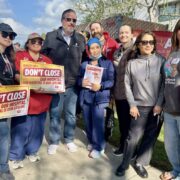

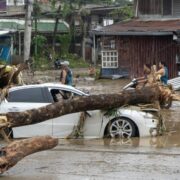


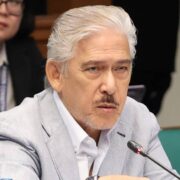

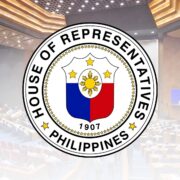
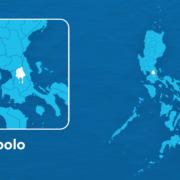




Southeast Asia’s resurging nationalism